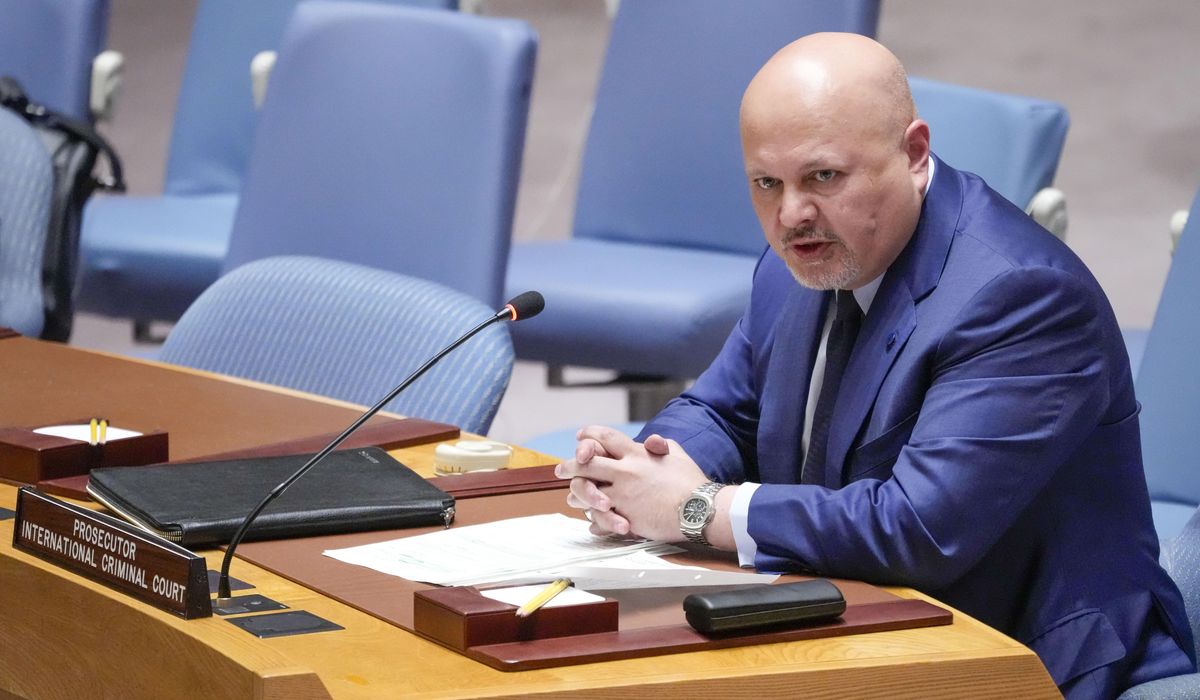ICC prosecutor says he is investigating alleged new war crimes in Sudan’s Darfur region

UNITED NATIONS — The International Criminal Court’s prosecutor said Thursday he is investigating alleged new war crimes and crimes against humanity in Sudan’s Darfur region during the country’s current conflict that has killed more than 3,000 people and forced over 3 million to flee their homes.
Karim Khan told the U.N. Security Council that fighting between government forces and the paramilitary Rapid Security Forces has spilled into Darfur which was wracked by bloodshed and atrocities in 2003. He said the world, the country and the council are “in peril of allowing history to repeat itself.”
In 2005, the Security Council referred the situation in Darfur to the ICC, and Khan said the court still has a mandate under that resolution to investigate crimes in the vast western region.
Darfur has been one of the epicenters of the current conflict that began on April 15, turning into an arena of ethnic violence with the paramilitary troops and allied Arab militias attacking African ethnic groups. Earlier Thursday, the U.N. human rights office said at least 87 bodies – some of them from the ethnic African Masalit tribe – were uncovered in a mass grave in West Darfur, and cited “credible information” that they were killed by Rapid Support Force fighters and an allied militia.
“We are investigating those allegations,” Khan told the council. “We are by any analysis not on the precipice of a human catastrophe but in the very midst of one.”
“There are women and children, boys and girls, old and young, in fear of their lives, living with uncertainty in the midst of conflict, and as their homes are burnt. Many as we speak will not know what the night will bring and what fate awaits them tomorrow,” the prosecutor said.
The vast Darfur region was engulfed in bloodshed in 2003 when rebels from the territory’s ethnic central and sub-Saharan African community launched an insurgency accusing the Arab-dominated government in Khartoum of discrimination and neglect.
The government, under then President Omar al-Bashir, responded with a scorched-earth assault of aerial bombings and unleashed local nomadic Arab militias known as the Janjaweed, who are accused of mass killings and rapes. Up to 300,000 people were killed and 2.7 million were driven from their homes.
Khan briefed the Security Council soon after leaders from Sudan’s seven neighboring countries met in Cairo on Thursday for the most high-profile peace talks since conflict erupted across the northeastern African country 90 days ago.
The 12 weeks of fighting have turned Khartoum, Sudan’s capital, into an urban battlefield.
The conflict forced more than 2.4 million people to flee their homes for safer areas inside the country, according to the International Organization for Migration. Around 738,000 others have crossed into neighboring countries, the agency said.

